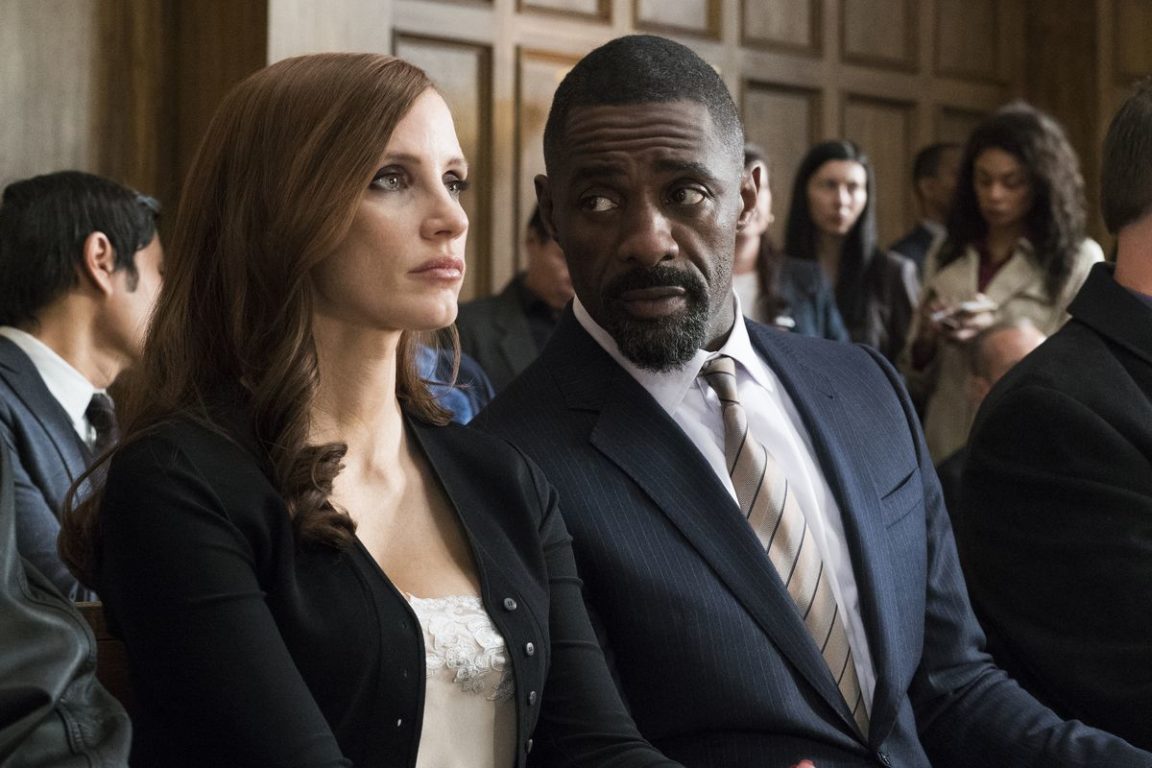Summary
Molly’s Game is based on the life of Molly Bloom, once a skier with Olympic dreams who suffers a catastrophic injury that ends her skiing career. She then becomes a “poker princess,” organizing poker games that involve Hollywood’s elite. In the film, the players’ true identities are kept secret but, according to the real Molly Bloom’s memoir, the games included A-list celebrities such as Leonardo DiCaprio, Matt Damon, and Tobey Maguire. The character of Player X, one of Molly’s biggest, most frightening clients, not to mention one of the best poker players at her table, is widely believed to have been based on Maguire.
Molly’s Game is directed by Aaron Sorkin in his directorial debut (though he is an Oscar-winning writer (The Social Network), and has logged impressive writing credits, such as The West Wing, A Few Good Men, and Moneyball). Molly’s Game stars Jessica Chastain (Molly Bloom), Idris Elba (Molly’s lawyer, Charlie Jaffey), Kevin Costner (Molly’s father, Larry Bloom), and Michael Cera (Player X), among others. The film plays with time periods; it features Molly when she was an Olympic-hopeful in skiing, Molly after recovering from her career-ending injury and becoming the “poker princess,” and Molly in the present-day, as she works with Charlie to build her defense case after being arrested by the FBI. The film also features multiple flashbacks to Molly’s childhood, as her father pushes her to be the best athlete possible.
Analysis
One would think that it may be difficult to follow Molly’s Game, given all the different time periods, but Sorkin pulls it off quite well. Where he struggles a bit, however, is with the casting. As great an actor as Michael Cera (Juno, Arrested Development, and an unforgettable guest appearance on Twin Peaks: The Return) is, he does not quite pull off the role of Player X, a character who is ruthless and unkind, yet also a flat-out mastermind. This reviewer found himself unable to believe Cera’s more serious scenes, especially those of which that were supposed to be threatening. Chris O’Dowd (Bridesmaids, The Sapphires) also comes off a little cheesy as Douglas Downey, a constantly-drunk character who hits on Molly.
With that said, some of Sorkin’s other casting choices were spot-on. Jessica Chastain is garnering Oscar-buzz for her performance as Molly, and was recently nominated for Best Actress at the Golden Globes – she is brilliant. She is particularly impressive given what she must work with. At times, Molly is living extravagantly, seemingly enjoying life in all its glory. At other times, particularly in the present, Chastain must portray a woman that has had her entire reputation tarnished and is entirely embarrassed by her arrest, yet strong and willing to fight to get what she deems as justice. Elba is tremendous in the scenes that he shares with Chastain. He effectively portrays a lawyer who is initially unwilling to take on cases where he believes his client is guilty of a felony, yet becomes attached to Molly and her case after hearing her account of the events. He gives an emotionally-charged speech towards the end of the film that, in this reviewer’s opinion, is the best scene of the film. Finally, Costner does a commendable job as Molly’s father, a man who pushes her (arguably) to extremes, and has demons of his own.
As for the film overall, it slightly misses the mark. One of the mainstays in the film concerns parents overworking their children and pushing them too hard for their own good. This is a difficult thing to explore – all adults parent their children differently – and Molly’s Game does not go into quite enough detail to tackle such a subject effectively.
One final idea that Molly’s Game seems to take on is the belief that everyone, even celebrities, puts up a mirage of their lives, an artificial account that they want others to see; it’s extraordinarily difficult to truly know what someone is going through. Multiple characters experience some sort of downfall, revealing how insecure or unhappy they may have been after all, despite the glamorous lives that they seemed to live. This idea is effectively portrayed throughout the film (this effectivity is aided significantly by an outstanding performance by Chastain).
Verdict
Molly’s Game features some very good performances, yet misses the mark on some other key characters. Its attempts to connect to a bigger idea work for some things (everyone puts up a mirage for others to see), but not for others (parents tend to overwork their children). The cinematography is, at times, quite breathtaking, yet sometimes Sorkin appears to rely too much on just glitz and glamour. Finally, given the fact that Molly’s Game is based on a true story, Sorkin does an adequate job at converting a good deal of material into a single film, even though the 2-hour, 20-minute runtime felt a bit long. All in all, Molly’s Game is a well-produced film about the true actions of Molly Bloom, yet fails to reach a deeper connection with societal issues.
6.5/10





Hi, this is a comment.
To get started with moderating, editing, and deleting comments, please visit the Comments screen in the dashboard.
Commenter avatars come from Gravatar.